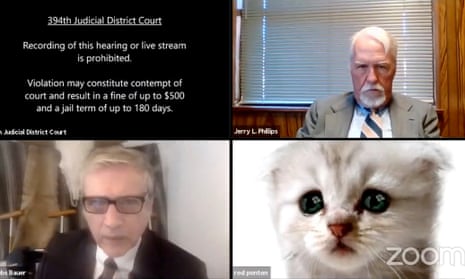I have nothing left to say to my friends any more. I think this is a longstanding symptom of the third lockdown, the boredom of which is blending into the horizon like a blur. Unlike the inescapable boredoms of lockdowns one (a kind of novelty boredom: everyone discovered how good they could feel without two hours of commuting every day; a weird kind of community feeling came out of baking banana bread and doing the same tedious Thursday night clap together) and two (the same, but different: jigsaws didn’t feel so fun once we’d all had that sweet taste of a pub or garden centre), the third lockdown’s inescapable boredom has a notably different texture to it. It’s something denser and spongier and greyer, a boredom that inspires … nothing.
Yes, there are some green shoots of optimism – with every text from an elderly or asthmatic person saying they’ve got the vaccine, the distant promise of the real world returning makes a tentatively solid-feeling step towards us – but it’s hard to remember that sometimes, when, in desperation for human contact, you find yourself messaging the usually crackling WhatsApp group chat with banter as dead as, “Lads: anyone got any good recipes for soup?”
I think that, beyond those still working frontline gigs or juggling childcare (for whom boredom, let alone being bored of boredom, is an almost unimaginable luxury), there is a problem in the broad sameness of us all being trapped at home, watching the same episodes of Bridgerton, playing the same looping games of Fifa, reliving the same quirks of Zoom calls (my move is to connect my video, but not my audio, so everyone in the call gets a shocking angle of my face as I peer at my phone trying to find the sound settings – it has been 11 months and I still cannot do this first time). There are all sorts of culprits for this malaise – the government, the novel coronavirus, ourselves – but I would like to single out just one for now: the internet.
What doesn’t help is, in a period where we have retreated more than previously possible into the world of online (we were all already pretty online, and then the only thing to do – and the only way to work a lot of jobs – was to go online, absolutely constantly), we’ve found that, as it turns out, the internet is pretty shallow. As the journalist Vincent Bevins put it: the internet simply does not work any more. There are about five websites to go on now. We’re locked down in the real world, and we’ve locked ourselves down in the digital one, too.
The vibrant Web 1.0 boom of the late 1990s and early 00s – eight-page Geocities webpages dedicated to people’s dogs, Star Wars Kid remix videos that took 45 minutes to load, those janky Flash games where you tried to make George W Bush fall into a dunk tank – have given way to an anodyne anti-web, a gleaming monolith of social media. We should all be in a Tron-like VR mega-world by now, flying around and talking about philosophy with AI, or at least a Hackers one, constantly defining and redefining society based on who can download the most data on to a floppy disk via a payphone. But actually, as it turns out, the main thing people do is log on and choose one of two blue websites to go and be racist on. We are not, as we dreamed of at the turn of the millennium, “surfing” a Technicolored “information superhighway”. We’re lying dazed in the gutter, checking our email then going on Facebook, a billion-dollar website that serves only to show you photos of university acquaintances you have no memory of meeting and a portal with which to argue with your neighbours about how much dog mess there is on your street.
You can see this in the life cycle of a handful of recent memes, which, in a fair and just internet world, would still be fizzing around today: the videoclip of the Weeknd bounding dizzily through a hall of mirrors (fewer than 36 hours of meme exposure); the infamous Jackie Weaver Zoom call (24 hours flat); the lawyer who turned into a cat (18, at a push). All of these arguably burned brighter than they ever would have if we were able to go outside and get away from them (“Yeah, he’s a cat. I mean it’s funny but … come on” – me, in an alternate reality where I’d been on holiday in the past 12 months), and crashed into the sea at a faster velocity, too. My theory is it’s because we’ve got nothing to say to each other: one of the only remaining ways we have left to communicate, of reaching out across the boundless grey boredom void, is sending the same viral clip to a friend (last message: “yo any good soups?” – seen four days ago) and saying something sparkling and conversational like, “Funny.” This boredom looms in front of us, huge and all-encompassing, and all we can do is send each other Instagram screenshots of tweets we’ve seen and archive clips of The Weakest Link that we watched 10 years ago.
Once this is all done – once the world is back to normal, or whatever “normal” is once every good venue, pub and restaurant has closed – we need to rebuild the internet anew to make sure this doesn’t happen again. It may be the only place we can viably hang out in, and right now it’s absolutely crap.
Joel Golby is the author of Brilliant, Brilliant, Brilliant Brilliant Brilliant
